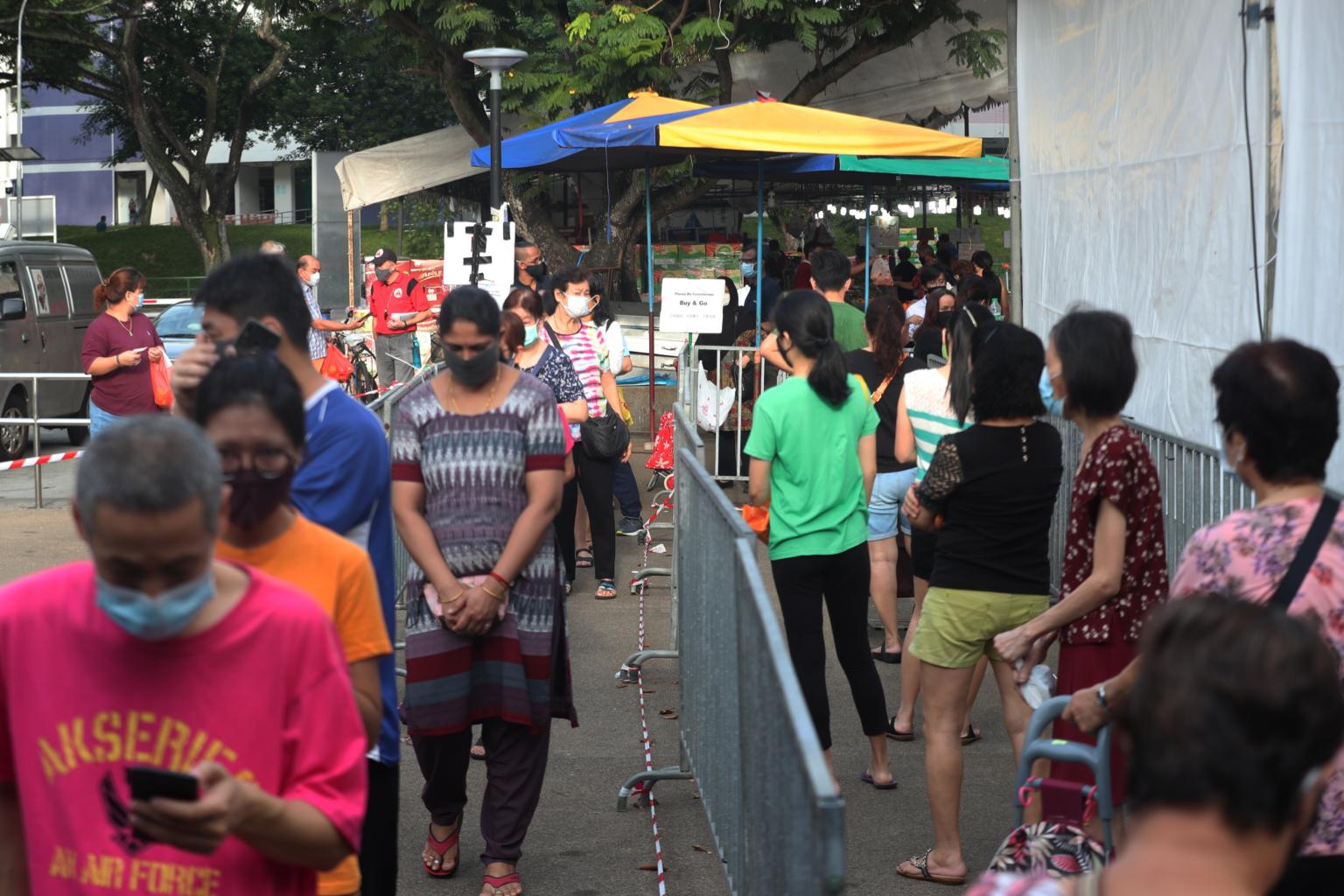Coronavirus pandemic
Sustained fall in numbers needed to be sure virus has been stopped
Experts also caution that dip in cases in dormitories could be due to reduced testing
Sign up now: Get ST's newsletters delivered to your inbox

Nine community cases were confirmed on April 25, marking the first time numbers have dropped to the single digits this month.
ST PHOTO: TIMOTHY DAVID
It will take at least a week of sustained decline in local community cases before Singapore can say that it has turned the corner, say infectious diseases experts.
They also cautioned that the dip in cases among foreign workers in the dormitories could be due to reduced testing being carried out.
Their comments come amid a glimmer of some hope that Singapore may be beginning to see some early signs of the infection curve flattening.
On Saturday, nine community cases, excluding foreign workers, were confirmed, marking the first time numbers have dropped to the single digits this month. Numbers at dormitories also slid, to 597 - down from about an average of a thousand daily in the five days before. This followed a generally downward trajectory since mid-last week.
However, the numbers jumped again yesterday. There were 931 new cases, of which 15 are Singaporeans and permanent residents.
Experts told The Straits Times that the decline in community cases needs to be sustained until at least the first week of next month, and even then, the clusters at dormitories could remain a challenge.
Dr Leong Hoe Nam, an infectious diseases expert at Mount Elizabeth Novena Hospital, said he would like to see fewer than five local cases daily this week, and then several days of zero transmissions in the first week of next month. "Only then would I say we are truly out of the woods. We realised that all you need is a tiny spark in the right setting and it can blow up, so even one new case is one too many," he said.
Similarly, Professor Wang Linfa, director of the emerging infectious diseases programme at the Duke-NUS Medical School, said one to two weeks of continuous data is needed to make sure the "trend is real".
He gave May 10 as a benchmark date, explaining that this is both due to the incubation period of the coronavirus, which averages 14 days, and to account for the effect of safe distancing measures.
The experts cautioned that the dip in Covid-19 cases among migrant workers is no cause for celebration, attributing it to reduced testing at some dormitories.
Associate Professor Hsu Li Yang, who leads the infectious diseases programme at NUS' Saw Swee Hock School of Public Health, said: "Certainly the intervention to move some of the workers out will enable physical distancing measures to be implemented properly at a few of the dormitories, but also numbers will fall as we do less testing, and will not reflect true numbers at the dormitories."


